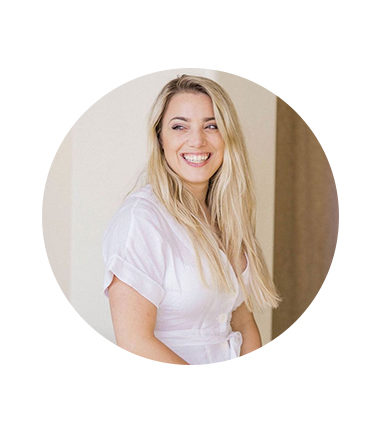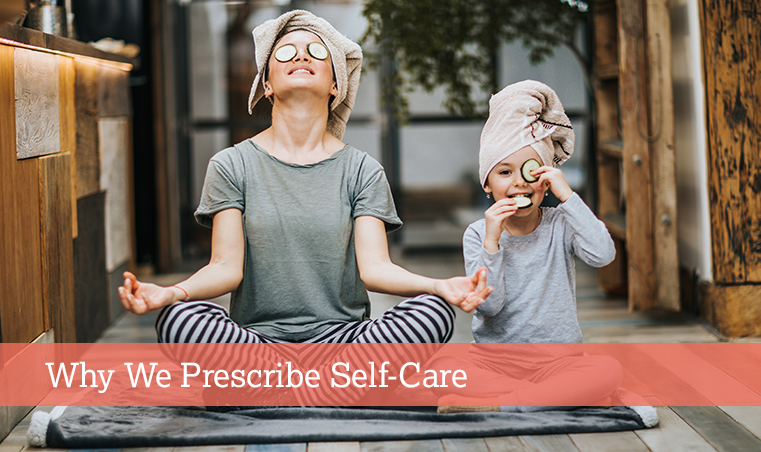Self-care is now a popular term used in the health and wellness space on social media. Its popularity stems from its use as a hashtag (#selfcare) on social media posts that typically feature the user in a bubble bath, face-mask, or undergoing a spa treatment.
But what exactly is self-care and what’s the real medical purpose behind it?
We sat down with the author of Self-Care RX and SteadyMD Doctor, Danielle DonDiego, to answer the most popular questions about self-care.
What is Self-Care?
Self-care is a recognition and intentional effort in improving ourselves. This can take on many forms, including our physical health, mental health, career, family, home life, and spirituality. Everyone will have some areas they excel in naturally, and some that need improvement. Identifying them is key.
How Do You Know When Self-Care is Needed?
Symptom Checklist:
- Feeling overwhelmed, like you can’t keep your head above water.
- Poor sleep, waking up a lot, racing thoughts.
- Fatigue is a big one! Lots of medical conditions and labs are checked because of fatigue, but in my experience when I discuss a patient’s lifestyle the answers are there.
- Weight gain or loss. Foods can soothe our emotions temporarily, and a cycle of weight changes and dieting can be a sign of a need for self-care and dietary stability. It’s often a consequence of something bigger going on internally and the inability to control calories as a response to stress. In addition to physiologic triggers for hunger and cravings.
So it’s Not All Bubble Baths and Facemasks…
All of these are great and fun! But they’re not the real answers.
Some bigger points are resting when your body is telling you to rest. We have a go-go-go mentality in America, the idea that more production = better life. In reality, we are made to rest and need it. We shouldn’t feel lazy for needing a break, it’s normal.
Having boundaries for who/what is in your life is an ongoing process. Recognizing things that are not healthy for you mentally and eliminating/limiting their ability to be in contact with you is huge. This also requires a decent level of self-awareness.
You have to actively create who/what you want around you, instead of living reactively to things that happen to you.
What are the Benefits to Self-Care?
Self-care is prevention. Mental health and emotional health are still stigmatized, and we tend to separate physical health with fitness and doctors and mental health with therapists. In reality, they all affect each other and shouldn’t be separated.
How Does Self-Care Affect Diet?
Some people turn to food for self-care from indulging to sweets or other treats (coffee, cakes, etc. and it’s so common!
I am an obesity specialist, and if I could say take this pill and you’ll lose weight my job would be super easy! I mean, there are medications, but they don’t do all the work.
In almost every conversation about weight with a patient, life stressors come up. To say to them, “no excuses go to the gym” or “don’t eat carbs” is so short-sighted. If we aren’t setting boundaries and living reactively instead of proactively, we are at risk for eating in response to how we feel about what happens to us that day. And food DOES make us feel good, I get it. My Italian grandmother always said “food = love” and she is kinda right!
If we are actively planning our workouts and meals (with some fun mixed in), then this is actually one less thing we have to think about, and if we have a stressful day we don’t have to eat something bad in response to it. We learn to be more in control but not letting stressors control us. We also need balance, and we shouldn’t demonize foods or food groups. If you feel guilty for something “bad” you ate, this perpetuates the cycle of poor self-care. I never prescribe a specific diet, I love all foods and think everything should be had in moderation – even ice cream.
Lifestyle
Part of self-care is physical health. Seeing your doctor and having labs and preventative tests done is part of that. The next step is what do you do with that knowledge. We know that obesity is a disease, it’s very difficult to treat and requires a multidisciplinary approach. It leads to diabetes, high blood pressure, heart disease, and so many other diseases.
If we want to get to the root of our health issues, our lifestyles come first. Medications can help when needed.
Having a daily exercise routine and an overall healthy diet is something we can all do for our physical self-care.

We highly recommend that you consult with your primary care physician before applying any significant lifestyle changes to your routine. Speaking with your doctor can help you incorporate the most meaningful and personalized self-care tips for you. The author of this article, Dr. Danielle DonDiego, is a member of our SteadyMD team and works with her patients on maximizing the benefits of self-care, nutrition, and fitness. To learn more about Dr. DonDiego, click here.
SteadyMD pairs you with a doctor based on your diet, lifestyle and medical concerns, not just someone who happens to be local.
Click here to take our 90 second quiz to get matched with a doctor based on your medical needs, dietary preferences and lifestyle.
